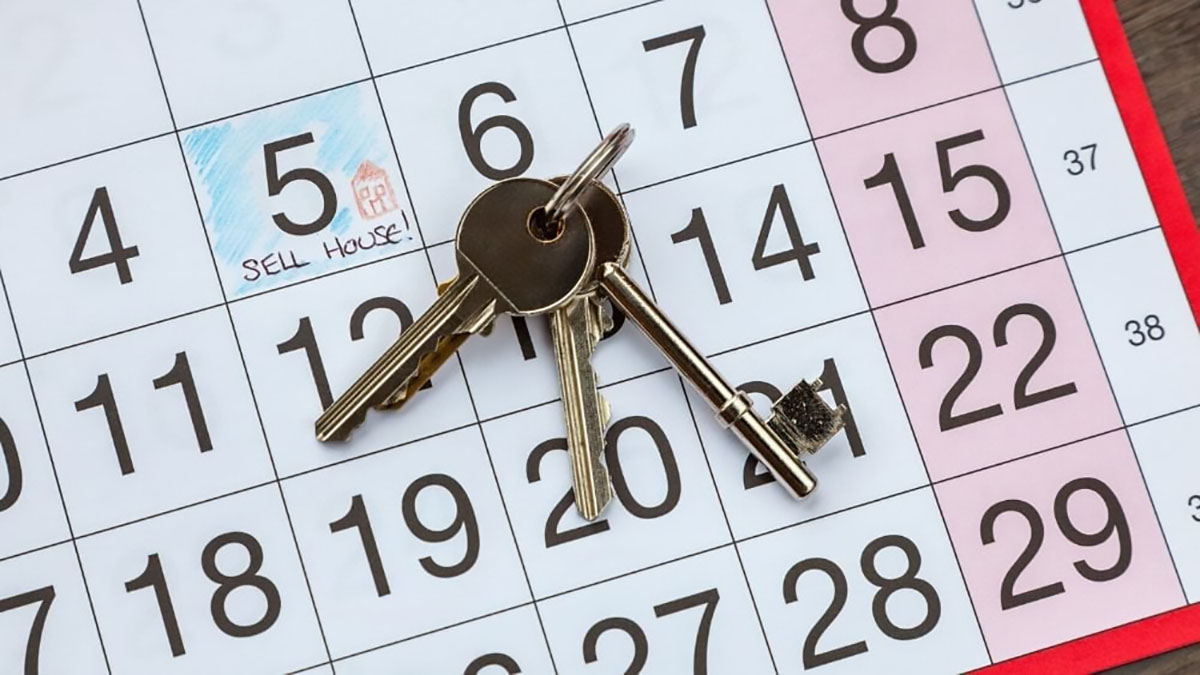Financial experts have a few “go-to” pieces of advice they give to every client. One of the most important: never make an important financial decision when you’re under stress.
That’s often easier said than done, because crucial decisions are often driven by stressful situations. For example, if you can’t afford your mortgage payments because you’ve lost your job or gotten divorced, you really can’t put off deciding what financial steps you have to take next.
Perhaps the most stressful time in life is when a loved one has just passed away. But if you’re also the executor of their estate, you can’t simply curl up and allow yourself to experience the five stages of grief before deciding what to do with their property.
There are still legal deadlines that have to be met.
The biggest task an executor may face is selling their loved one’s home. And the law won’t wait for very long before the process must get started.
How Long Does the Executor Have To Sell the House?
As with way too many legal questions, unfortunately, the answer is basically “it depends.” In this case, it depends on how long probate lasts.
Probate is the legal process during which a court decides whether a will is valid, all assets and property are identified and inventoried, all debts and taxes are paid, and the remaining assets are distributed to heirs – all subject to approval of the court.
That can take as few as six months or as long as a few years, depending on how complicated the estate is and if the will is being contested. (If there is no will, courts take over and appoint an executor, unless the estate is a small one.)
That’s why there’s really no law or regulation governing how quickly a house must be sold after the owner has passed away. The only rules are that the home can’t be sold until the estate has entered probate, and it must be sold before probate is officially closed by the court.
There are several exceptions.
- If the house is jointly owned with “right of survivorship,” the surviving owner simply takes ownership and can sell whenever they like.
- If the home’s owner has placed the home into a living trust or specified that it go into other specific types of trusts upon their death, it won’t have to go through probate and any sale is up to the trust administrator.
- And in some states, the owner can establish a “beneficiary deed” (sometimes called a “transfer-on-death” deed) which lets a beneficiary inherit the house without being subject to probate. (Here’s why that’s an important step: even if a will names a person who should inherit a house, title companies often won’t transfer the property until it goes through the full probate process. If there’s a beneficiary deed, though, the judge may approve the transfer before the rest of the estate is settled.)
In all other cases, the executor who had been named in the will by the home’s owner, or an executor appointed by the court, must sell the house before probate is closed. And it’s best to start the process as soon as practically possible.
That’s for two reasons.
First, houses can fall into disrepair over time, and it’s the executor’s responsibility to prevent that from happening. The longer it takes for the house to be put up for sale, the more it will cost the estate for maintenance and repairs – and the executor is expected to avoid unnecessary costs, since they have a fiduciary responsibility to protect the financial interests of the estate. In other words, they have to take care of the property as if it were their own, until it’s sold.
Second, probate can’t end until all of the estate’s debts have been satisfied, and some of the sale proceeds may be needed to pay creditors before the rest of the money can be inherited.
(One important warning: If you sell or try to sell a house before probate is opened, you could find yourself in legal trouble.)
Bottom Line: An executor’s only deadline for selling a house is determined by when probate will close. That can be 6-12 months for simple estates, years for complicated ones. However, it’s in everyone’s interest that the house is sold as soon as possible.
What Steps Must An Executor Take to Sell A Home?

When a home’s owner has died, their executor generally follows the normal home sale process. There are extra complications to deal with, however.
Here’s how it works.
1. The Will is Filed with the Probate Court and an Executor is Named
In most states the will must be filed within 30 days, although a few states allow as long as 4-5 years before the probate process must begin.
2. The House is Prepared for Sale
This can be done at any stage of the process. It’s best done early, though, in order to ensure that a home appraisal will come in at the highest possible value. This may involve clearing out the owner’s belongings, performing any necessary repairs or cosmetic work like painting and deep cleaning, and staging the property so it shows at best advantage. At this point the home insurance company should also be contacted; they may require that a new policy be issued showing the estate as the property’s owner.
3. A Full Property Appraisal is Performed
Homeowners often have an appraisal done before putting their house on the market. In an estate sale, there’s no wiggle room. The court will almost always require an appraisal. That’s so the judge can determine whether a purchase offer is acceptable; most probate courts won’t approve an offer unless it’s for at least 90% of the home’s value. After receiving the appraisal, the court will grant permission for the executor to put the home up for sale.
4. The House is Listed on the Market
Since it’s the executor’s responsibility to sell the house for the highest-possible price, probate courts will normally require that the home is listed on the open market. If a relative or close friend wants to purchase the house, the judge must approve the offer – and usually will not do so until the property has been publicly listed, to make sure that no one else will pay more.
5. Offers are Presented to the Probate Court
An executor usually doesn’t usually have the sole right to accept an offer on a house and move forward with the sale, if the property is being sold in probate. They need the court’s approval, too. (In a few states like California, approval isn’t required if the offer is at least 90% of the appraised value.)
All offers (if there have been more than one) must be submitted to the court, along with the signed purchase and sale agreement. That will satisfy the judge that the executor has fulfilled their responsibility to sell the home for the highest possible price.
If the owner has left the home to multiple beneficiaries in the will, all of the beneficiaries must also sign a waiver agreeing to the sale price. If they refuse, they may have the right to buy out the other beneficiaries under the supervision of the court, depending on state law. Otherwise, it’s up to the judge to settle the dispute to all parties’ satisfaction.
After the court has been satisfied, the judge will give the green light to proceed to closing.
6. The Closing Process
The same steps that normally occur between accepting an offer and finalizing the sale, including the satisfaction of contingencies, are followed during an estate sale. At closing, the executor will simply sign the documents on behalf of the estate, and the payment they receive should go into a separate bank account set up for the estate. In some states, the payment will deposited directly with the probate court instead of the bank. In either case, the proceeds cannot be distributed to beneficiaries until ordered by the court.
Bottom Line: An executor isn’t the final decision maker when selling a house in probate. The sales process is essentially the same, but the probate court must give its approval at every key step of the process. That ensures that decisions are being made in the best interest of the estate.
Important Reminder for Executors Who Are Selling a House
When you’re the executor of an estate, you aren’t “on your own.”
You’re free to make pricing decisions, solicit offers wherever and however you like, accept whatever offer sounds best to you, and seal the deal as you see fit.
As an executor, however, your responsibility isn’t to your bank account or your gut. It’s to the estate itself – which means your responsibility is to the estate’s creditors and the beneficiaries named in the will.
That’s why the court is involved in all steps of the sale. The judge ensures that your actions as executor are in the best interest of everyone involved.
What’s the best way to be sure you’re doing the right thing in between court appearances? It’s by hiring an experienced probate lawyer to interpret the legal requirements and assist you with court filings, and by hiring a realtor who is experienced in probate sales. (Remember: you won’t be paying them out of your own pocket; they’re reimbursed by the estate.)
For simple transactions, these professionals will be able to guide you through the process. And if problems develop, such as tax liens on the property which need to be satisfied, or beneficiaries who object to some of the decisions you’ve made, you’ll find that having experienced pros by your side will prevent any missteps that could have major financial repercussions, incur serious legal penalties – or destroy family relationships.
